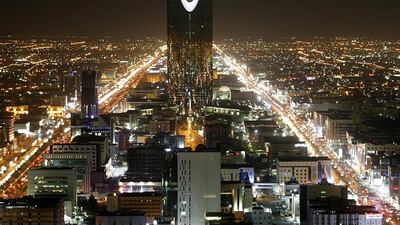The world of Sharia-compliant finance has its own lexicon, which can make reading financial news tough going if you aren’t up to speed. Sukuk is a term that often comes up, let's go through what it means and how it works.
What are sukuks?
Sukuk, plural for sakk, are Sharia-compliant alternatives to conventional bonds. Sharia law (or policies that comply with Islamic teachings) prohibits “riba”, or interest. This makes interest-bearing bonds or loans unacceptable for borrowers as a means of raising funds or for investors as investment opportunities.
Sukuks are usually backed by tangible assets or specific projects, so instead of earning interest over the lifespan of the Islamic investment certificate, investors receive a part of the earnings or profit generated by the asset or the project.
Who issues them and when did sukuk come into play?
After a slow start in the early 2000s when they were first introduced in Malaysia , sukuks are now part of the funding mix of major corporations, financial institutions governments and sovereign wealth funds.
Major markets for the bonds include Indonesia, Malaysia, Pakistan, GCC and the Middle East and North Africa. Some western countries including the United Kingdom also use sukuk as an established funding tool.
Like international bonds, sukuks are listed on domestic as well as international exchanges. Nasdaq Dubai is one of the major listing hubs of sukuk in the region where the Sharia-compliant certificates are traded in secondary market.
How are they different from conventional bonds?
They are different in how they are structured. Money is usually the underlying asset in a conventional bond, which pays a coupon or interest periodically through its life cycle with the face value of the certificate paid back at the maturity of the bond to investors.
However, sukuk are either asset-based or asset-backed by land, property, factories or physical quantities of valuable commodities, in a partnership between the borrower and the investor, who gets the share of earnings or profits from that asset.
_______________
Read more:
ADIB raises Dh1bn through rights issue and closes $750m sukuk
Exclusive: Almarai expects to issue a new sukuk by year-end, CFO says
_______________
Conventional bonds can be used to fund any segment of an economy, but sukuk cannot be used for purposes deemed harmful to society under Sharia law, such as gambling or alcohol.
In case of default, lenders holding a conventional bond can lodge a lawsuit against the borrower to recover as much of the principal amount and interest due. But with a sukuk, the underlying asset in the deal is sold to recover the outstanding amount.
What are the current trends in the global sukuk market?
After a strong year in 2017, the global sukuk market has slowed down significantly in the first half of 2018, down 15.3 per cent to $44.2 billion (Dh162bn) compared with total issuances of $52.2bn in the first half of 2017, as global liquidity tightened and the cost of borrowing rises with the US Federal Reserve interest rate hikes.
The drop in foreign currency denominated sukuk was even more pronounced, falling 45 per cent compared with the first six months of 2017. Last year was a good year for global sukuk issuance, with borrowers from Saudi Arabia, the region’s biggest economy, raising $26bn in funds. Issuers in the kingdom have raised only $2bn through the sale of sukuk in the first half of this year.


